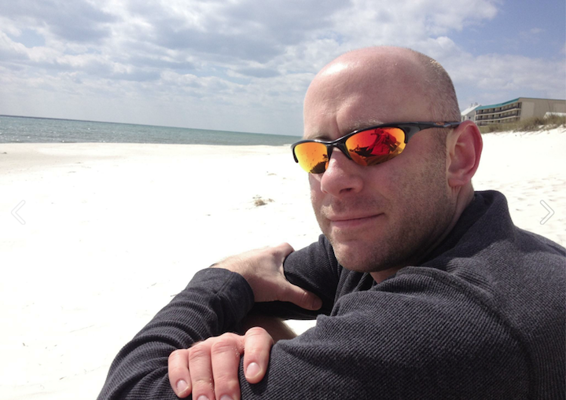
Q&A with Nick Webb

Every once in a while an author comes across as story and says, “Darn it... why didn’t I think of that?” Hope 91 is one of those stories for me. I’m thrilled to be able to include it in this anthology. Was there a specific incident or person that suggested the set-up to you?
I’m so relieved someone liked it! Honestly, it was a bit of a “left field” story for me. My standard fare, for novels at least, is shoot-em-up pew-pew military space romps. It’s nice to take a break from that and do something completely different.
Several movies, books, and stories got me in the mood for Hope 91. I love the story devices of time dilation and cryo-sleep that are used to great emotional effect in both the movie Interstellar, and The Dark Age, one of my favorite short stories by Jason Gurley. The idea of separation from your loved ones in not only space, but time, for me evokes one of those gut-punch feelings—imagining missing not only the physical presence of a parent or a child, but missing out on large chunks of their lives because of a universal speed limit and the nature of space-time itself is something both terrible and poignant to think about, since it makes me appreciate and take more care for the time together we do enjoy. Another recent influence is Neal Stephenson’s Seveneves, where the Earth is soon to be rendered uninhabitable by an exploding moon, and humanity’s only hope is to send as many people as possible to live in orbit. I took that one step further and focused not on the apocalyptic event itself, but on the perspective of the lone, solitary journey of a kid who grows up in space, longing at first for his now-long-dead parents but eventually just hoping for human contact of any kind, and once finding it, then losing it, telling the story of what he will do to get it back.
What is your background, and does it inform your writing?
I am a scientist by training and a writer by hobby, but that has recently flipped. I’m now a full-time professional writer, and dream of doing science on the side. I have a Ph.D. in experimental physics and have done work for Los Alamos National Lab and a handful of other government agencies. Does it inform my writing? Yes and no. I mean, it’s great to have a solid grasp of science and physical laws and it certainly makes “hand-waving” a bit easier since I’m fluent in the language of science. But on the other hand, this is fiction, and for me the characters and the story are far more important than writing a book with 100% accurate science.
What are you working on now?
I just finished up my Legacy Fleet trilogy, which was one of the bestselling SciFi series last year, for which I’m both flabbergasted and grateful. Next up will be something similar: another space opera trilogy set in the same universe as the Legacy Fleet trilogy. After that I’m going to shift my focus to something more present day. For years I’ve developed the wonderfully addicting habit of Wikipedia surfing—I’ll start on a benign page like “Solid Rocket Motors,” and eventually, twenty pages later, will be reading up on the origins of Rosicrucian secret societies in late medieval Europe. For over a year I’ve planned to write my “Wikipedia surfing” technothriller—something where I can dump everything I’ve learned falling down the Wikipedia rabbit holes and cram them all into one novel, a hodgepodge of conspiracy theories, reimaginings of historical events, and in general explodey, shootey goodness against the backdrop of a present day societal-techno crisis.
So how can readers find you?
Come friend me on Facebook (https://www.facebook.com/authornickwebb), and/or sign up on my website at www.nickwebbwrites.com to receive all my short stories for free!